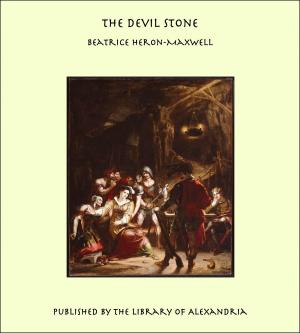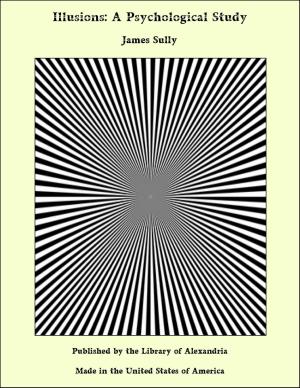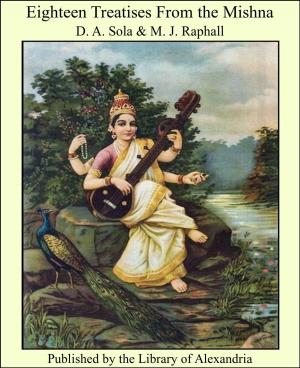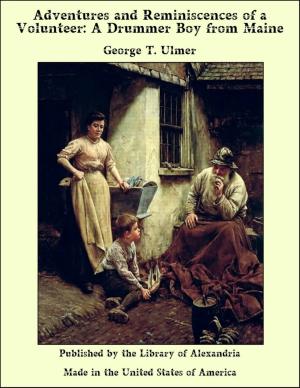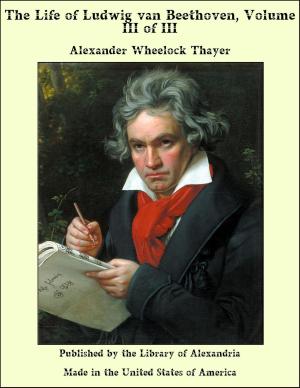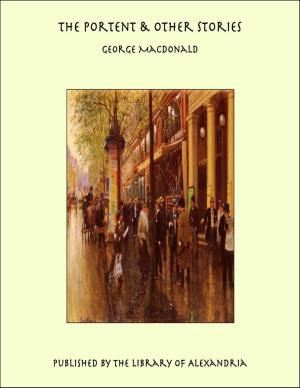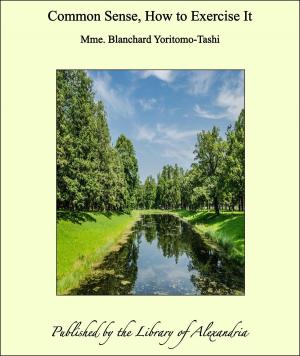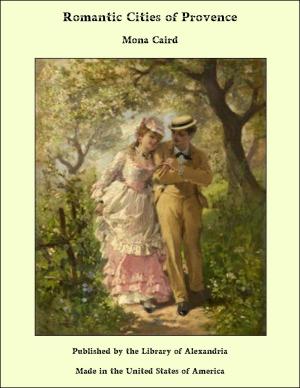| Author: | Emerson Hough | ISBN: | 9781465611826 |
| Publisher: | Library of Alexandria | Publication: | March 8, 2015 |
| Imprint: | Language: | English |
| Author: | Emerson Hough |
| ISBN: | 9781465611826 |
| Publisher: | Library of Alexandria |
| Publication: | March 8, 2015 |
| Imprint: | |
| Language: | English |
The old woman who spoke—a wrinkled dame she was, bowed down by years and infirmity, her face creased by a thousand grimed-in, wrinkled lines—moved with an odd sprightliness as she stepped across the floor. She placed a hand upon the shoulder of the young man whom she accosted, standing between him and the door of the little cabin of which they were the only occupants. The young man turned toward her, smiling half dreamily. He was a tall man, as his outstretched legs, one crossed over the other, would attest; a man well developed, muscular and powerful. His gray eyes seemed now half a-dream, his wide mouth fixed itself in pleasant lines, so that he seemed far away, somewhere in the lands to which music offers access. For now he had been engaged in the production of what perhaps might have been called music. It was an old ballad tune he had been playing on his violin, and but now his grandam had joined in high and cracking treble on the old air of “Barbara Allen,” known time out of mind in these hills. It was the keener ear of the old woman which first had caught warning of approaching danger. “Take keer, I say!” she repeated, and shook him impatiently. “I tell ye I heerd him come in at the lower gate. He’ll be here direckly. Git shet of that fiddle, boy!” She bent on him a pair of deep-set hazel eyes, sharp as those of some wild creature. Her voice had in it a half-masculine dominance. Every movement of her stooped and broken body bespoke a creature full of resolution, fearless, fierce.
The old woman who spoke—a wrinkled dame she was, bowed down by years and infirmity, her face creased by a thousand grimed-in, wrinkled lines—moved with an odd sprightliness as she stepped across the floor. She placed a hand upon the shoulder of the young man whom she accosted, standing between him and the door of the little cabin of which they were the only occupants. The young man turned toward her, smiling half dreamily. He was a tall man, as his outstretched legs, one crossed over the other, would attest; a man well developed, muscular and powerful. His gray eyes seemed now half a-dream, his wide mouth fixed itself in pleasant lines, so that he seemed far away, somewhere in the lands to which music offers access. For now he had been engaged in the production of what perhaps might have been called music. It was an old ballad tune he had been playing on his violin, and but now his grandam had joined in high and cracking treble on the old air of “Barbara Allen,” known time out of mind in these hills. It was the keener ear of the old woman which first had caught warning of approaching danger. “Take keer, I say!” she repeated, and shook him impatiently. “I tell ye I heerd him come in at the lower gate. He’ll be here direckly. Git shet of that fiddle, boy!” She bent on him a pair of deep-set hazel eyes, sharp as those of some wild creature. Her voice had in it a half-masculine dominance. Every movement of her stooped and broken body bespoke a creature full of resolution, fearless, fierce.

